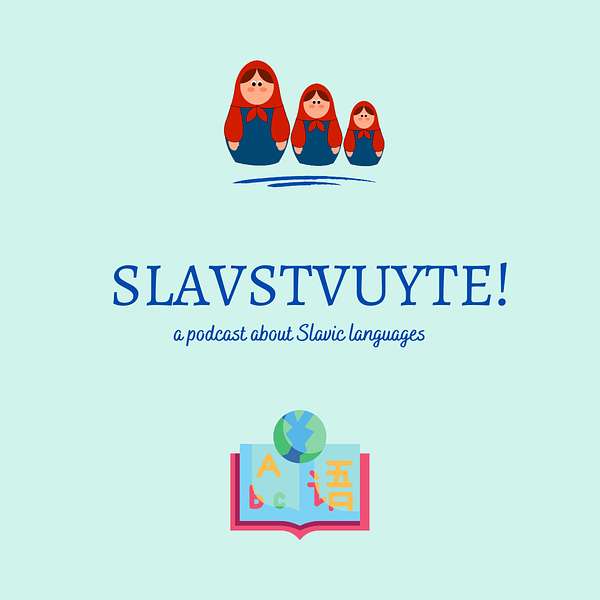
Slavstvuyte!
Each episode, your host, along with a variety of experts, will explore a different aspect of Slavic languages, from grammar and syntax to dialects and slang. We'll also take a look at the role of language in Slavic culture, literature, and politics, and examine the ways in which Slavic languages have influenced and been influenced by other languages throughout history.
Whether you're a language enthusiast, a student of Slavic culture, or simply curious about the world around you, Slavstvuyte has something for you. So join me as we celebrate the rich tapestry of Slavic languages and the communities that speak them, and discover the fascinating world of Slavic linguistics.
Slavstvuyte!
Reflexive-possessive pronoun *svojь
First of all, I am going to have to admit - the quality of this audio is bad since I am experiencing some issues with my microphone. Still, I hope it won´t be too distracting and I apologize for the inconvenience.
Slavic languages express the belonging of the person or object in question through the reflexive-possessive pronoun *𝐬𝐯𝐨𝐣ь. But when exactly is it used and what is its role among all the other possessive pronouns? 𝐓𝐮𝐧𝐞 𝐢𝐧 𝐭𝐨 𝐟𝐢𝐧𝐝 𝐨𝐮𝐭!
Literature mentioned in the episode:
1. HONSELAAR, WIM. “REFLECTIONS ON THE RUSSIAN REFLEXIVE POSSESSIVE PRONOUN ЅѴОЈ.” Studies in Slavic and General Linguistics, vol. 8, 1986, pp. 235–48. JSTOR, http://www.jstor.org/stable/40996930. Accessed 15 Feb. 2023.
2. Nedoluzhko, Anna. "A new look at possessive reflexivization: A comparative study between Czech and Russian." Proceedings of the Workshop on Grammar and Lexicon: interactions and interfaces (GramLex). 2016.
Support Slavstvuyte through www.buymeacoffee.com/slavstvuyte
Follow me on Facebook, Instagram, Twitter, and Linkedin.
For additional information, go to www.slavstvuyte.org
All inquiries, questions, and comments can be sent to slavstvuyte@gmail.com
